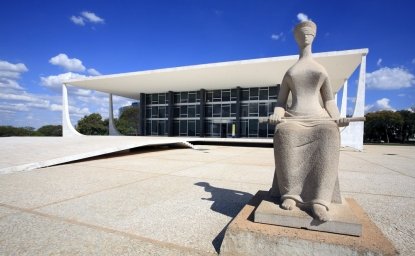 Press Freedom in the Americas has been in a general decline for the past 15 years. According to Freedom House’s latest findings (2015), only 43% of the countries in the Americas are ranked as having ‘free’ press. The remaining countries fall in the range of ‘partly free’ (43%) and ‘not free’ (14%). Moreover, the report states that “as journalists faced violence and intimidation from both government authorities and criminal elements, several countries in the Americas, including Ecuador, Honduras, Mexico, Peru, and Venezuela, received their worst press freedom scores in over a decade. The regional average score fell to its lowest level of the past five years, with declines across the legal, political, and economic categories.”
Press Freedom in the Americas has been in a general decline for the past 15 years. According to Freedom House’s latest findings (2015), only 43% of the countries in the Americas are ranked as having ‘free’ press. The remaining countries fall in the range of ‘partly free’ (43%) and ‘not free’ (14%). Moreover, the report states that “as journalists faced violence and intimidation from both government authorities and criminal elements, several countries in the Americas, including Ecuador, Honduras, Mexico, Peru, and Venezuela, received their worst press freedom scores in over a decade. The regional average score fell to its lowest level of the past five years, with declines across the legal, political, and economic categories.”
In light of this decline, Chairman Duncan of the Subcommittee on the Western Hemisphere in the House Committee on Foreign Affairs heard testimonies from five witnesses on July 29th in order to address the ongoing issue of press freedom in the Americas. The four panelists were: Carlos Ponce, Director of the Latina America Program at Freedom House; Carlos Lauría, Senior Americas Program Coordinator for the Committee to Protect Journalists; Claudio Paolillo, Chairman of the Freedom of the Press and Information Committee at the Inter-American Press Association; Nicolás Pérez Lapentti, Co-Director of El Universo in Ecuador and; Alfredo Corchado, former fellow at the Wilson Center and the current Mexico Bureau Chief at The Dallas Morning News. Chairman Duncan opinion of the hearing is as follows:
“The ability to speak openly without censure or fear of reprisal is a hallmark of free peoples everywhere, and freedom of the press is critical to sustaining democracy and the rule of law…In the Western Hemisphere, the growing trend of conditioning or even curtailing press freedoms is deeply disturbing. From severe government repression and outright targeting of journalists by Cuba, Venezuela, and Ecuador to organized crime, corruption, and impunity in other countries in Latin America and the Caribbean, journalists have very difficult jobs, often risking their very lives and their loved-ones to bring information and the truth to their fellow citizens… I look forward to considering how the U.S. can better engage in the region to more effectively promote press freedoms and defend every persons right to freely express themselves.”
Mexico, more specifically, ranks 31st out of the 35 countries in the Americas, followed only by Ecuador, Honduras, Venezuela and Cuba. Mexico’s global ranking is not any better, ranking 139th out of 199 countries. Out of 100, its press freedom score fell at 63, placing it in the category of ‘not free’ by Freedom House’s standards:
“Mexico remained one of the world’s most dangerous places for media workers in 2014, and freedom of expression faced new threats with the adoption of the Federal Telecommunications and Broadcasting Act in July. Multiple attacks on journalists and media outlets were carried out during the year, reporters faced police aggression while covering protests, and self-censorship remained widespread. While the telecommunications and broadcasting law allowed greater competition in both sectors, it also granted the government powers to monitor and shut down internet activity during protests.”
According to Carlos Lauría, the inability of reporters to freely publicize the news is of the greatest consequence for the public: “Because of government repression, many journalists are not able to report the news. This is leaving many people in many countries to make informed decisions. I think that an uninformed society is a less transparent and less democratic one.” However, Lauría goes on to say, “The issue is not black and white. There are places where there is great investigative work going on the reveals and exposes corruption…Even in countries like Mexico, where areas are outside of the control of the government…you have great examples of courageous journalists doing investigative work on corruption.” On his part, Alfredo Corchado echoed what Lauría had to say, but noted that the consequences of the heroism in journalism is not without consequence, reminding the committee that many journalists from Mexico and Latin America have had to seek political asylum in the US, despite how many people still believe in journalism as a mechanism for holding the government accountable.
As such, the panelists called upon the US Congress to persuade the executive branch of the government to have a stronger voice in these issues: “There are legal dictatorships in place today. We need to look back at the Inter-American Democratic Charter. It is in place now, it is enforceable now.” Certainly, when one considers the decline in press freedom in our backyard, it seems that the US can no longer ignore these basic violations of human rights.
- See more at: /article/subcommittee-hearing-threats-to-press-freedom-the-americas#sthash.4el5po9y.dpuf







